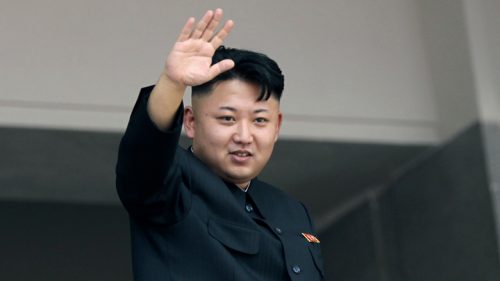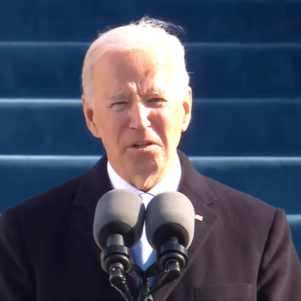The Kim Conundrum
By Glen A. Sproviero | October 4, 2017, 16:16 EDT

The Trump Administration’s acknowledgement that it is in direct contact with the North Korean government over its missile and nuclear testing programs is an important step toward the peaceful resolution of a crisis that, until now, appeared headed for a full-scale military confrontation.
And while war with North Korea remains a significant possibility, Secretary of State Rex Tillerson’s most recent diplomatic efforts appear to be bearing fruit. Notwithstanding President Donald Trump’s continued adherence to tough language, the administration is well aware that war with Kim Jong-un’s regime would be bloody, economically devastating, catastrophic to the environment, and politically unpredictable. Is a nuclear-free North Korea worth the struggle and the enormous risks? Certainly not.
Retired Admiral James Stravridis, sitting on a panel at the University of Pennsylvania, recently estimated that a conventional armed conflict with North Korea would result in at least 500,000 casualties, and that the death toll from a nuclear confrontation would increase that number dramatically. Moreover, a war-torn Korean peninsula would leave a political and economic vacuum that could enable China to take an even greater role in dictating Asian affairs.
Although the prospect of a nuclear-armed North Korea is as unpalatable as Kim is unpredictable, the costs of a war to disarm the North Korean regime far outweigh the benefits. But this does not require that the world must live in perpetual fear of a James Bond-like villain who perennially threatens to annihilate entire populations with nuclear weapons if his demands are unmet. There is a way forward that simultaneously enervates North Korea’s ability to remain a nagging military threat without resorting to war.
Kim is a fundamentally rational leader who wants to perpetuate his wealth and the survival of his regime. Continued control over North Korea is his primary goal, and when this control is threatened, he lashes out with bombastic threats. The war against Kim is ultimately a psychological conflict with a spoiled narcissist.
Kim is not the equivalent of an Islamic fundamentalist who would see his own destruction as a means of ultimate salvation. Kim relishes being in the spotlight. He loves women, money, and power. The fact that world leaders focus upon his misbehavior only serves to empower him and embolden his resolve to engage in more aggressive acts. He is the equivalent of the schoolyard bully who thrives on bad attention. The solution is to stop giving it to him. The question is how to do this.
According to the Stockholm International Peace Research Institute, nine nations possess an approximate 16,000 nuclear weapons combined. The United States used them in the Second World War, and nuclear weapons have played a prominent role in international relations for well over seventy years. Nuclear-tipped intercontinental ballistic missiles fueled the Cold War, yet both the United States and the Soviet Union understood that their use would result in mutual destruction.
In fact, any rational government knows that the use of nuclear weapons would result in an overwhelming military, and likely nuclear, response from the global community. If North Korea were to use nuclear weapons, it would cost the Kim regime the support of China even before the United States responded with overwhelming military force. Kim comprehends the gravity of a nuclear strike, even if that understanding is only in relation to the consequences he would personally suffer.
Seven decades of nuclear-charged geo-politics has illuminated an unexpected but clear fact, that while a nation’s possession of atomic weapons is emblematic of its power and prestige, such weapons provide limited diplomatic leverage as they cannot be employed without the user itself suffering likely annihilation. As the Cold War taught, nuclear weapons are almost entirely a deterrent and not a viable military alternative. They are so powerful, and their consequences so gruesome, that no rational government would dare to use them unless it was itself faced with inevitable complete destruction.
If the international community allows North Korea to keep its nuclear arsenal, Kim will continue to threaten the world with the use of nuclear weapons; however, it is incumbent upon diplomatic leaders to lessen the emphasis on the value of these devices – to lessen their importance so that they cannot be used as an effective bargaining chip. Placing an emphasis on the primacy of nuclear weapons, and preventing “belligerent” countries from gaining them, is not always the best path toward ameliorating the threat. Once the atomic genie was released from its lamp, there was no going back. Now, the problem is containing the damage.
While the thought of a nuclear North Korea is abhorrent, large stocks of nuclear weapons are already possessed by countries with significant Islamist populations whose more radical elements are hardly rational and would not hesitate to use them if given the opportunity. Despite the steady stream of psychobabble from its government, North Korea remains more stable than many of these other nations. It does not serve the Kim regime’s long-term goals (i.e., self-preservation) well to use even a single nuclear device. And while we cannot discount North Korea’s potential to do so, we would be better served if we de-emphasized the importance of nuclear weapons to global military power.
In that regard, it is paramount that world leaders act to encourage the Kim regime to refrain from engaging in any action that would require an armed response. This includes following through on its threat to test a Hydrogen bomb in the Pacific Ocean, which would necessarily include the launching of a nuclear-armed projectile into Japanese air space and the release of nuclear waste into the sea. Such an action might require a military response with far-reaching consequences. The time for de-escalation is now.
The Trump Administration has taken the lead on this issue by imposing additional sanctions, and even China has begun to increase pressure on its ally and trading partner. China’s involvement is particularly important given that North Korea provides a convenient distraction to the West regarding China’s ever-increasing bellicosity in the “South China Sea.”
While we can blame several decades of failed Asian policies in both Washington and other Western capitals for the present conundrum, it serves the West little to remain locked in a fight with North Korea. Let South Korea, Japan, China, and other Asian countries deal with Kim’s megalomania. It’s time for us to get out of the way.
Glen A. Sproviero is a commercial litigator in New York City. Read other columns by him here.











